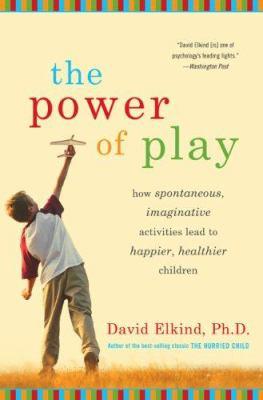
The power of play : how spontaneous, imaginative activities lead to happier, healthier children
Available Copies by Location
| Location | |
|---|---|
| Victoria | Available |
Browse Related Items
| Subject |
| Play > Psychological aspects. |
- ISBN: 9780738210537
- ISBN: 0738210536
- Physical Description xii, 240 pages
- Publisher Cambridge : Da Capo Press, [2007]
- Copyright ©2007
Content descriptions
| General Note: | "Da Capo Life Long". |
| Bibliography, etc. Note: | Includes bibliographical references (pages 221-227), Internet addresses and index. |
| Immediate Source of Acquisition Note: | LSC 24.00 |
Additional Information

The Power of Play : How Spontaneous, Imaginative Activities Lead to Happier, Healthier Children
Click an element below to view details:
Summary
The Power of Play : How Spontaneous, Imaginative Activities Lead to Happier, Healthier Children
In modern childhood, free, unstructured play time is being replaced more and more by academics, lessons, competitive sports, and passive, electronic entertainment. While parents may worry that their children will be at a disadvantage if they are not engaged in constant, explicit learning or using the latest "educational" games, David Elkind's The Power of Play reassures us that unscheduled imaginative play goes far in preparing children for academic and social success. Through expert analysis of the research and powerful situational examples, Elkind shows that, indeed, creative spontaneous activity best sets the stage for academic learning in the first place: Children learn mutual respect and cooperation through role-playing and the negotiation of rules, which in turn prepare them for successful classroom learning; in simply playing with rocks, for example, a child could discover properties of counting and shapes that are the underpinnings of math; even a toddler's babbling is a necessary precursor to the acquisition of language. An important contribution to the literature about how children learn, The Power of Play suggests ways to restore play's respected place in children's lives, at home, at school, and in the larger community. In defense of unstructured "down time," it encourages parents to trust their instincts and resist the promise of the wide and dubious array of educational products on the market geared to youngsters.


